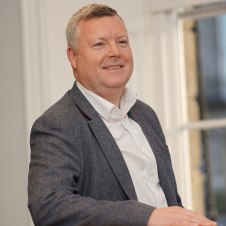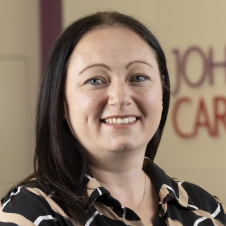How do we help people have more good days?
Burnout is a well-recognised challenge in accountancy, with almost four fifths of accountants saying there is a problem in the profession. As we approach Mental Health Awareness Week (May 12-18, 2025), it’s time for the industry’s leaders to reflect – and act.
Although a highly respected and rewarding career choice, accountancy is undoubtedly demanding, involving complex services delivered to a wide range of complex businesses. Additional pressure is also created by external deadlines such as tax returns, annual accounts and the tax year end.
Our annual people surveys don’t suggest we have serious problems with colleagues suffering severe mental health or burnout problems, but how would we know for sure in all cases? To try and get ahead of burnout we’ve started trying to tackle how to minimise stress and achieve a better work-life balance for our people.
As an HR team, we are shifting the narrative around wellbeing in the workplace and asking instead: how do we help people have more good days at work? Too often we found ourselves talking about mental health problems rather than asking our people what we could do to make the workplace a more enjoyable, productive and happy place.
One of our first actions was to become members of the Mindful Business Charter. This is an initiative to encourage more mindful thinking in the workplace such as avoiding contacting people out of office hours or when they are on holiday, thinking about how many people need to be copied into emails, or if an email needs to be sent at all. Our membership gives us access to a wealth of resources and workshops on how to support better habits in the workplace. One change we’ve made is to make all diary invites stop five minutes before the half hour, and 10 minutes before the hour to enable people to take a break or make a cup of tea between meetings. It’s these incremental changes that can have the greatest impact.

Our culture is based on the principle that everyone is a leader of their work and their learning which immediately encourages solution-focused conversations. Our JC Aspire lunch and learn programme incorporates wellness education and our leadership training course, which is accredited at Masters-level by Strathclyde Business School, actively seeks to ask challenging questions of our leaders around how we achieve high performing teams while supporting positive wellbeing. One of the sessions we run is about distributed leadership. This is where all levels of a business are involved in discussions about change which results in greater buy in and a feeling of involvement for everyone. Mindfully delegating to others and ensuring that they have the training and tools to be able to operate to a high standard is also key to distributed leadership and maintaining a healthy, productive workplace.
We support hybrid working and have a flexible approach to how our people work their hours. We have trained mental health first aiders, and our employee-led people and culture forum has established a special sub-group, Balance, dedicated to promoting wellness.
As part of the work of the Balance group, members of our senior leadership team and our board have openly discussed and written about their mental health challenges on our internal communications channels, covering topics including the loss of a loved one, and getting through difficult periods at work. This has fostered openness in the firm and a sense that if senior people can talk about the challenges they’ve faced, all of us can too.
If we are to get ahead of burnout it's vital that support is strategic and targeted. It’s too easy to adopt initiatives simply for the sake of doing them; for example, hosting a one-off breathing workshop might help the handful of people who attend, but are they going to practise what they have learnt longer term? And how do we spread any benefit with colleagues who weren’t present?
One of the greatest stressors in the workplace is poor performance or misconduct; for those who have to manage and for those whose work is under a spotlight. Most cases end up involving HR because of a failure to have difficult conversations, often years earlier. In my experience, having the difficult conversation can often result in an unexpected outcome with an individual putting their hands up to their poor performance, acknowledging they need more support, or accepting that the job is not for them. By having difficult conversations early, we can remove huge sources of unhappiness in the workplace for everyone.
Accountancy is a profession that attracts high-performing, well-educated and driven people. And yet, despite all this brainpower we still fail to look after ourselves. One of our messages is ‘Quality Starts with Me’ and this could equally be applied to having more good days at work.
We have much improvement still to make but our recent people survey saw 91% of people agreeing that we have a workplace that is fair and looks after people, and we recently certified as a Great Place to Work. We have made positive progress but our mission to have more good days at work is in many ways an infinite goal. At Johnston Carmichael we will always be striving to be better.


